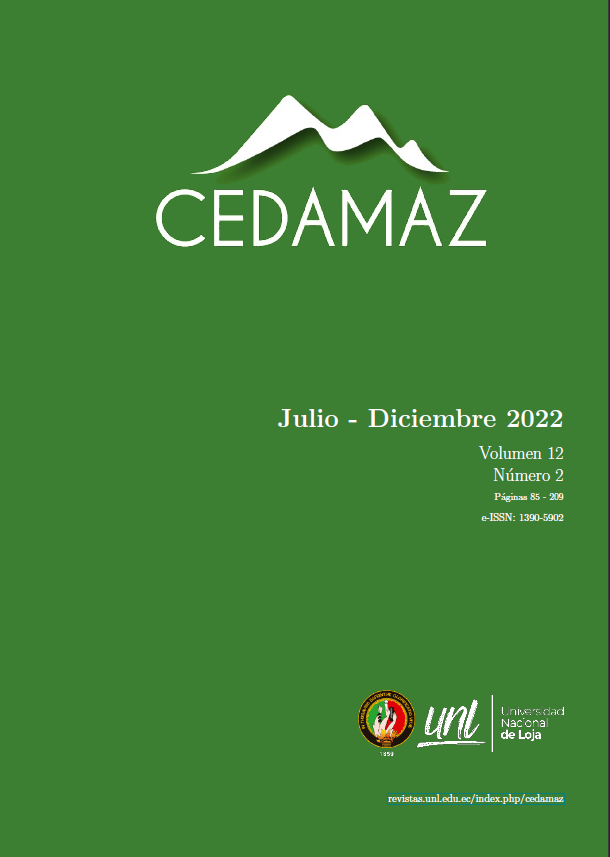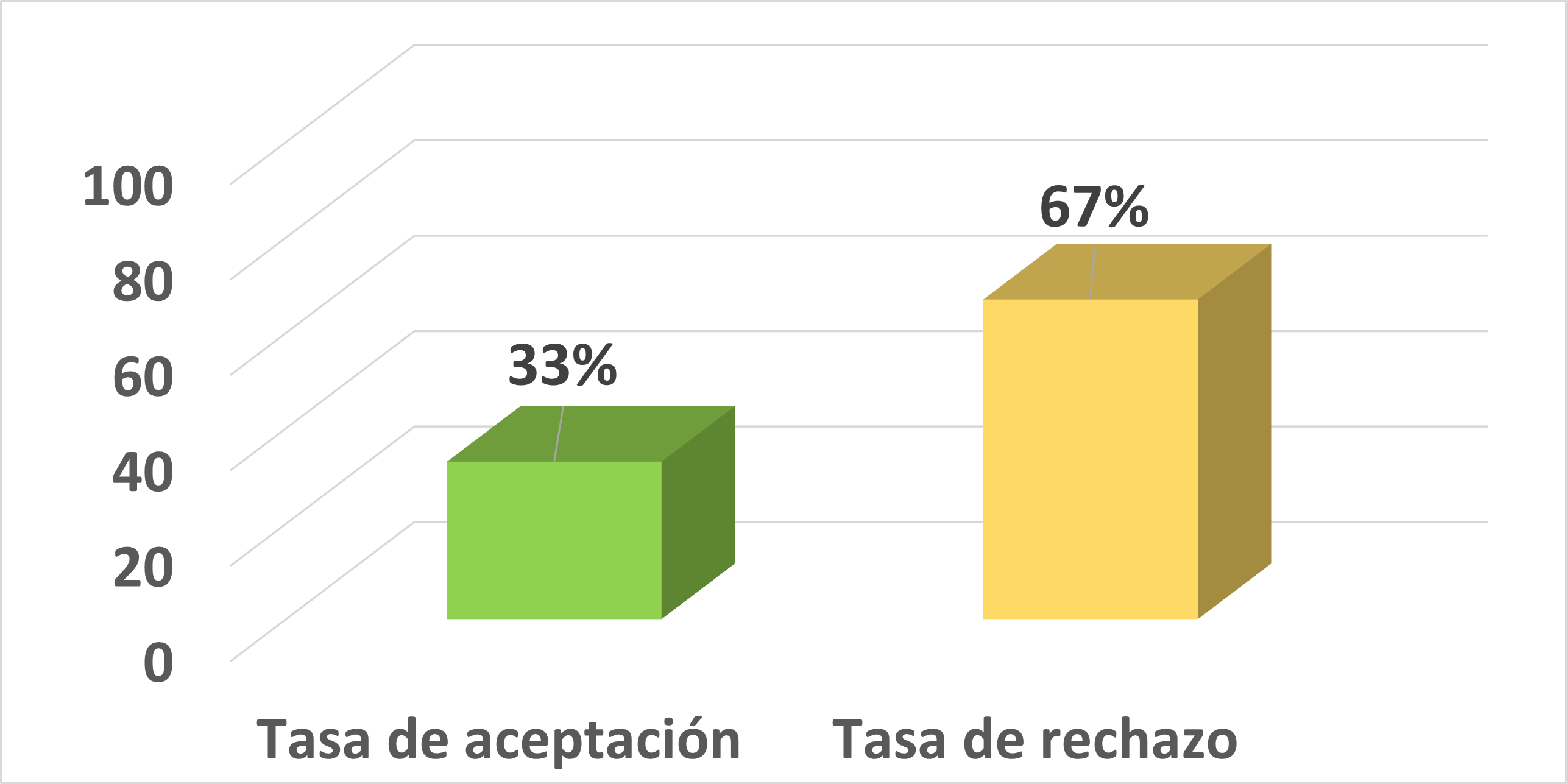Meta-analysis: Efficacy and safety of apixaban versus warfarin in patients with atrial fibrillation for prophylaxis of adverse cardiovascular events
DOI:
https://doi.org/10.54753/cedamaz.v12i2.1266Keywords:
Apixaban, Warfarin, Atrial fibrillation, Prophylaxis, Cardiovascular eventAbstract
Abstract—Patients with atrial fibrillation (AF) require anticoagulant therapy to prevent adverse cardiovascular events. A widely used drug is warfarin with variable and inconsistent benefits and an increased risk of bleeding. Given this, new therapeutic alternatives are arising and need to be evaluated, such as apixaban, and that its the purpose of conducting this meta-analysis. PubMed and Cochrane Library databases were used. The study included 62,141 patients with AF from 6 ARISTOTLE-type randomized clinical trials. The fixed effect test was applied for the grouped results, and the homogeneity of the analyzed data was tested. The meta-analysis was performed to evaluate the proposed variables (efficacy and safety). The efficacy assessment established that apixaban appears to be more effective than warfarin in preventing stroke (OR = 0.81; LC 95% = 0.74-0.90; p-value <0.05) and in death from all causes (OR = 0.90; LC 95% = 0.84-0.95; p-value <0.05). In the prophylaxis of myocardial infarction (OR = 0.91; LC 95% = 0.7-1; p-value >0.05) no significant difference between both drugs was found. In the safety assessment, it was determined that the risk of major bleeding (OR = 0.7; LC 95% = 0.6-0.7; p-value <0.05) is lower with apixaban compared to warfarin. In conclusion, the use of apixaban shows better results than warfarin in preventing adverse cardiovascular events; however, more studies are required to verify these findings. Keywords: Apixaban, warfarin, atrial fibrillation, prophylaxis, and cardiovascular event.References
Almutairi, A. R., Zhou, L., Gellad, W. F., Lee, J. K., Slack, M. K., Martin, J. R. (2017). Effectiveness and Safety of Non – Vitamin K Antagonist Oral Anticoagulants for Atrial Fibrillation and Venous Thromboembolism: A Systematic Review and Meta-Analyses. Clinical Therapeutics, 1–59. https://doi.org/10.1016/j.clinthera.2017.05.358 DOI: https://doi.org/10.1016/j.clinthera.2017.05.358
Andrade, J., Khairy, P., Dobrev, D., Nattel, S. (2014). The clinical profile and pathophysiology of atrial fibrillation: relationships among clinical features, epidemiology, and mechanisms. Circulation Research, 114(9), 1453–1468. https://doi.org/10.1161/CIRCRESAHA.114.303211 DOI: https://doi.org/10.1161/CIRCRESAHA.114.303211
Assiri, A., Al-majzoub, O., Abir, O., Donovan, J. L., Silva, M. (2013). Mixed Treatment Comparison MetaAnalysis of Aspirin , Warfarin , and New Anticoagulants for Stroke Prevention in Patients With Nonvalvular´Atrial Fibrillation. Clinical Therapeutics, 35(7), 967-984.e2. https://doi.org/10.1016/j.clinthera.2013.05.011 DOI: https://doi.org/10.1016/j.clinthera.2013.05.011
Bahit, M. C., Lopes, R. D., Wojdyla, D. M., Hohnloser, S. H., Alexander, J. H., Lewis, B. S., Aylward, P. E., Verheugt, F. W. A., Keltai, M., Diaz, R., Hanna, M., Granger, C. B., Wallentin, L. (2013). Apixaban in patients with atrial fibrillation and prior coronary artery disease: Insights from the ARISTOTLE trial. International Journal of Cardiology, 170(2), 215–220. https://doi.org/10.1016/j.ijcard.2013.10.062 DOI: https://doi.org/10.1016/j.ijcard.2013.10.062
Bassand, J.-P. (2012). Revisión de los ensayos clínicos deanticoagulantes orales y antiagregantes en fibrilación auricular. Revista Uruguaya de Cardiología, 27(2), 175–190.
Galván Espinoza, L., Fernández Fresnedo, G. (2017). New oral anticoagulants in patients with chronic kidney disease. Nuevos anticoagulantes orales en pacientes con enfermedad renal crónica. Nefrologia : publicacion oficial de la Sociedad Espanola Nefrologia, 37(3), 244–252. https://doi.org/10.1016/j.nefro.2016.08.006. DOI: https://doi.org/10.1016/j.nefro.2016.08.006
Bruins Slot, K. M., Berge, E. (2018). Factor Xa inhibitors versus vitamin K antagonists for preventing cerebral or systemic embolism in patients with atrial fibrillation (Review). The Cochrane Database of Systematic Reviews, 3(3 CD008980). DOI: https://doi.org/10.1002/14651858.CD008980.pub3
Christersson, C., Wallentin, L., Andersson, U., Alexander, J. H., Alings, M., De Caterina, R., Gersh, B. J., Granger, C. B., Halvorsen, S., Hanna, M., Huber, K., Hylek, E. M., Lopes, R. D.,
Oh, B. H., Siegbahn, A. (2019). Effect of apixaban compared with warfarin on coagula-
tion markers in atrial fibrillation. Heart, 105(3), 235–242. https://doi.org/10.1136/heartjnl-2018-313351 DOI: https://doi.org/10.1136/heartjnl-2018-313351
Da Silva, F. C., Arancibia, B. A. V., da Rosa Iop, R., Gutierres Filho, P. J. B., da Silva, R. (2013). Escalas y listas de evaluación de la calidad de estudios científicos. RevistaCubana de Información en Ciencias de la Salud (ACIMED), 24(3), 295-312.
Escobar, C., Martí-Almor, J., Pérez Cabeza, A., Martínez-Zapata, M. J. (2019). Direct Oral Anticoagulants Versus Vitamin K Antagonists in Real-life Patients With Atrial Fibrillation. A Systematic Review and Meta-analysis. Revista espanola de cardiologia (English ed.), 72(4), 305–316. https://doi.org/10.1016/j.rec.2018.03.009 DOI: https://doi.org/10.1016/j.rec.2018.03.009
Flaker, G., Lopes, R. D., Al-Khatib, S. M., Hermosillo, A. G., Hohnloser, S. H., Tinga, B., Zhu, J., Mohan, P., Garcia, D., Bartunek, J., Vinereanu, D., Husted, S., Harjola, V. P., Rosenqvist, M., Alexander, J. H., Granger, C. B. (2014). Efficacy and safety of apixaban in patients after cardioversion for atrial fibrillation: Insights from the Aristotle trial (Apixaban for Reduction in Stroke and Other Thromboembolic Events in Atrial Fibrillation). Journal of the American College of Cardiology, 63(11), 1082–1087. https://doi.org/10.1016/j.jacc.2013.09.062 DOI: https://doi.org/10.1016/j.jacc.2013.09.062
Goto, S., Zhu, J., Liu, L., Oh, B. H., Wojdyla, D. M., Aylward, P., Bahit, M. C., Gersh, B. J., Hanna, M., Horowitz, J., Lopes, R. D., Wallentin, L., Xavier, D., Alexander, J. H. (2014). Efficacy and safety of apixaban compared with warfarin for stroke prevention in patients with atrial fibrillation from East Asia: A subanalysis of the apixaban for reduction in stroke and other thromboembolic events in atrial fibrillation (ARISTOTLE) tria. American Heart Journal, 168(3), 303–309. https://doi.org/10.1016/j.ahj.2014.06.005 DOI: https://doi.org/10.1016/j.ahj.2014.06.005
Guimarães, P. O., Pokorney, S. D., Lopes, R. D., Wojdyla, D. M., Gersh, B. J., Giczewska, A., Carnicelli, A., Lewis, B. S., Hanna, M., Wallentin, L., Vinereanu, D., Alexander, J. H., Granger, C. B. (2019). Efficacy and safety of apixaban vs warfarin in patients with atrial fibrillation and prior bioprosthetic valve replacement or valve repair: Insights from the ARISTOTLE trial. Clinical Cardiology, 42(5), 568–571. https://doi.org/10.1002/clc.23178 DOI: https://doi.org/10.1002/clc.23178
Jaspers Focks, J., Brouwer, M. A., Wojdyla, D. M., Thomas, L., Lopes, R. D., Washam, J. B., Lanas, F., Xavier, D., Husted, S., Wallentin, L., Alexander, J. H., Granger, C. B.,Verheugt, F. W. A. (2016). Polypharmacy and effects of apixaban versus warfarin in patients with atrial fibrillation: post hoc analysis of the ARISTOTLE trial. BMJ (Clinical Research Ed.), 353, i2868. https://doi.org/10.1136/bmj.i2868 DOI: https://doi.org/10.1136/bmj.i2868
Lau, D. H., Nattel, S., Kalman, J. M., Sanders, P. (2017). Modifiable Risk Factors and Atrial Fibrillation. Circulation, 136(6), 583–596. https://doi.org/10.1161/CIRCULATIONAHA.116.023163 DOI: https://doi.org/10.1161/CIRCULATIONAHA.116.023163
Liu, X., Huang, M., Ye, C., Zeng, J., Zeng, C., Ma, J. (2020). The role of non-vitamin K antagonist oral anticoagulants in Asian patients with atrial fibrillation: A PRISMA-compliant article. Medicine, 99(27), e21025. https://doi.org/10.1097/MD.0000000000021025 . Lobraico-Fernandez, J., Baksh, S., Nemec, E. (2019). DOI: https://doi.org/10.1097/MD.0000000000021025
Elderly Bleeding Risk of Direct Oral Anticoagulants in Nonvalvular Atrial Fibrillation: A Systematic Review and Meta-Analysis of Cohort Studies. Drugs in R and D, 19(3), 235–245. https://doi.org/10.1007/s40268-019-0275-y DOI: https://doi.org/10.1007/s40268-019-0275-y
López-López, J. A., Sterne, J. A. C., Thom, H. H. Z., Higgins, J. P. T., Hingorani, A. D., Okoli, G. N., Davies, P. A., Bodalia, P. N., Bryden, P. A., Welton, N. J., Hollingworth, W., Caldwell, D. M., Savovic, J., Dias, S., Salisbury, C., Eaton, D., Stephens-boal, A., Sofat, R. (2017). Oral anticoagulants for prevention of stroke in atrial fibrillation: systematic review , network meta-analysis , and cost effectiveness analysis. BMJ (Clinical Research Ed.), 359(j5058).
https://doi.org/10.1136/bmj.j5058 DOI: https://doi.org/10.1136/bmj.j5058
Margulescu, A. D., Mont, L. (2017). Persistent atrial fibrillation vs paroxysmal atrial fibrillation: differences in management. Expert Review of Cardiovascular Therapy, 15(8),
–618. https://doi.org/10.1080/14779072.2017.1355237 DOI: https://doi.org/10.1080/14779072.2017.1355237
Page, M. J., McKenzie, J. E., Bossuyt, P. M., Boutron, I., Hoffmann, T. C., Mulrow, C. D., Shamseer, L., Tetzlaff, J. M., Akl, E. A., Brennan, S. E., Chou, R., Glanville, J., Grimshaw, J. M., Hróbjartsson, A., Lalu, M. M., Li, T., Loder, E. W., Mayo-Wilson, E., McDonald, S., Mc-
Guinness, L. A., Moher, D. (2021). The PRISMA 2020 statement: an updated guideline for reporting systematic reviews. Declaración PRISMA 2020: una guía actualizada para la publicación de revisiones sistemáticas. Revista espanola de cardiologia (English ed.), 74(9), 790–799. https://doi.org/10.1016/j.rec.2021.07.010 DOI: https://doi.org/10.1016/j.rec.2021.07.010
Ramírez-Barrera, J. D., Agudelo-Uribe, J. F., Correa-Velásquez, R., González-Rivera, E. (2016). Fisiopatología de la fibrilación auricular. Revista Colombiana de Cardiología, 23(S5), 9–14. https://doi.org/10.1016/j.rccar.2016.10.004 DOI: https://doi.org/10.1016/j.rccar.2016.10.004
Shen, N.-N., Wu, Y., Wang, N., Kong, L.-C., Zhang, C., Wang, J.-L., Gu, Z.-C., Chen, J. (2020). Direct Oral Anticoagulants vs. Vitamin-K Antagonists in the Elderly With Atrial Fibrillation: A Systematic Review Comparing Benefits and Harms Between Observational Studies and Randomized Controlled Trials. Frontiers in Cardiovascular Medicine, 7(September), 1–9. https://doi.org/10.3389/fcvm.2020.00132 DOI: https://doi.org/10.3389/fcvm.2020.00132
Vinereanu, D., Stevens, S. R., Alexander, J. H., Al Khatib, S. M., Avezum, A., Bahit, M. C., Granger, C. B., Lopes, R. D., Halvorsen, S., Hanna, M., Husted, S., Hylek, E. M., Mrgulescu,
A. D., Wallentin, L., Atar, D. (2015). Clinical outcomes in patients with atrial fibrillation according to sex during anticoagulation with apixaban or warfarin: A secondary analysis of a randomized con trolled trial. European Heart Journal, 36(46), 3268–3275. https://doi.org/10.1093/eurheartj/ehv447 DOI: https://doi.org/10.1093/eurheartj/ehv447
Vizzardi, E., Curnis, A., Latini, M. G., Salghetti, F., Rocco, E., Lupi, L., Rovetta, R., Quinzani, F., Bonadei, I., Bontempi, L., D’Aloia, A., Dei Cas, L. (2014). Risk factors for atrial fibrillation recurrence: A literature review. Journal of Cardiovascular Medicine, 15(3), 235–253. https://doi.org/10.2459/JCM.0b013e328358554b DOI: https://doi.org/10.2459/JCM.0b013e328358554b
Wijesuren- dra, R. S., Casadei, B. (2019). Mechanisms of atrial fibrillation. Heart, 1–8. https://doi.org/10.1136/heartjnl-2018 314267
Zhang, J., Tang, J., Cui, X., Wang, B., Bu, M., Bai, Y., Wang, K., Guo, J., Shen, D., Zhang, J. (2019). Indirect comparison of novel Oral anticoagulants among Asians with non Valvular atrial fibrillation in the real world setting: A network meta-analysis. BMC Cardiovascular Disorders, 19(1), 1–12. https://doi.org/10.1186/s12872-019-1165-5 DOI: https://doi.org/10.1186/s12872-019-1165-5
Published
How to Cite
Issue
Section
License
Copyright (c) 2022 CEDAMAZ

This work is licensed under a Creative Commons Attribution-NonCommercial-NoDerivatives 4.0 International License.
Those authors who have publications with this journal, accept the following terms:
- After the scientific article is accepted for publication, the author agrees to transfer the rights of the first publication to the CEDAMAZ Journal, but the authors retain the copyright. The total or partial reproduction of the published texts is allowed as long as it is not for profit. When the total or partial reproduction of scientific articles accepted and published in the CEDAMAZ Journal is carried out, the complete source and the electronic address of the publication must be cited.
- Scientific articles accepted and published in the CEDAMAZ journal may be deposited by the authors in their entirety in any repository without commercial purposes.
- Authors should not distribute accepted scientific articles that have not yet been officially published by CEDAMAZ. Failure to comply with this rule will result in the rejection of the scientific article.
- The publication of your work will be simultaneously subject to the Attribution-NonCommercial-NoDerivatives 4.0 International (CC BY-NC-ND 4.0)









